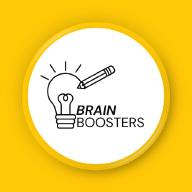What’s covered (at a glance)#
Biology – cells and microscopy; body systems (skeleton, muscles, gas exchange, digestion); photosynthesis and respiration; ecosystems, interdependence, and biodiversity; inheritance, DNA and variation. (GOV.UK)
Chemistry – particle model and changes of state; atoms/elements/compounds and simple formulae; pure vs impure substances and separation; types of reactions (combustion, oxidation, acids/alkalis); energetics (exo/endothermic); the Periodic Table; materials and Earth/atmosphere (rock cycle, resources, carbon cycle). (GOV.UK)
Physics – energy stores and transfers; motion and forces; pressure in fluids; waves (sound and light); electricity and magnetism; using equations and quantitative relationships. (GOV.UK)
Working scientifically – planning enquiries (independent/dependent/control variables), safe practical work, taking measurements, analysing data with tables/graphs, evaluating methods, and using SI units and scientific vocabulary precisely. (GOV.UK)
Common sticky spots#
- Experimental design: choosing a suitable enquiry and controlling variables for a fair test. (GOV.UK)
- Graphs & data: selecting the right representation, reading scales, and justifying conclusions from evidence. (GOV.UK)
- Units & formulas: converting between SI units, rearranging equations, and linking maths to measurements. (GOV.UK)
- Particles & conservation: moving from the particle model to explaining diffusion, changes of state, and why mass is conserved in reactions. (GOV.UK)
- Energy & electricity: distinguishing energy stores vs transfers, interpreting circuits, and explaining cause–effect clearly. (GOV.UK)
How I support your child#
- Quick diagnostic → tailored plan: I identify gaps from KS2 and early KS3, then set clear, achievable steps.
- Hands-on, safe practicals: build understanding through simple investigations, not just notes—always tied to “working scientifically.” (GOV.UK)
- Concrete → pictorial → abstract: diagrams, models and sentence stems before formal symbols and equations.
- Maths-in-science boosters: targeted help with units, graphs and rearranging formulas so calculations feel routine. (GOV.UK)
- Feedback parents can use: brief updates after lessons, with small practice tasks to lock in progress.
If you’d like, I can run a short, no-pressure assessment and share a 4–6 week plan focused on confidence and strong habits in KS3 science.
